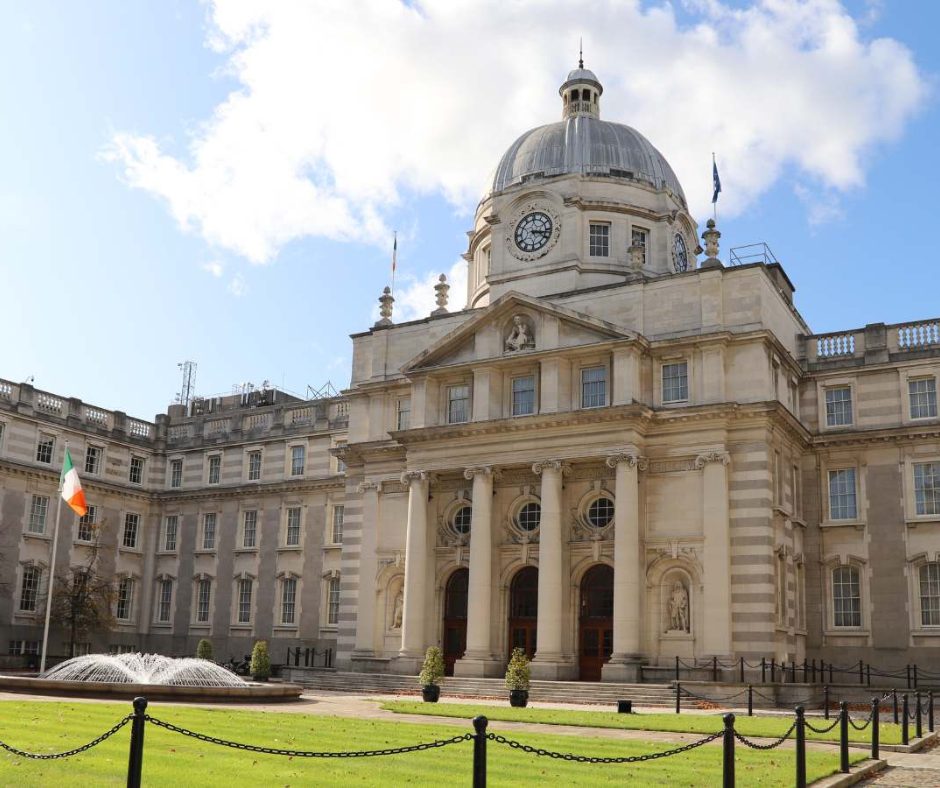
Irelands National Security
Adapted from The Irish Times
Ireland national security is in crisis currently facing increasing threats, showing crisis on the horizon. From terrorism to espionage and cyberattacks, the country’s intelligence services are under significant pressure to keep pace with the evolving landscape of global risks. These challenges have recently been articulated by senior officials, highlighting the urgent need for reforms.

A Summer of Security Challenges for Irelands National Security Crisis
In August 2024, a tragic incident in Galway made headlines: Fr. Paul Murphy was stabbed and seriously injured in front of Renmore Barracks. The alleged assailant, a 16-year-old boy, has been charged with assault, and the court was informed that he may have held a radical Islamist mindset.
Simultaneously, gardaí issued warnings about a rise in far-right violence, including potential assassination plots targeting politicians. Michael McElgunn, Assistant Commissioner of the Garda National Crime and Security Intelligence Service, took to the national airwaves, warning that Russian spies are actively trying to steal intellectual property from Irish companies and multinationals, and are also seeking to support extremist groups within Ireland.
Cybersecurity Vulnerabilities
Following McElgunn’s warning, Richard Browne, Director of the National Cybersecurity Centre (NCSC), cautioned that Ireland has never been more exposed to the possibility of a major cyberattack. He emphasised that there is a significant risk of an attack within the next two years. Despite these dire warnings, both McElgunn and Browne operate within severe resource constraints.
For instance, the NCSC’s annual budget is just under €11 million, whereas similarly sized nations like New Zealand invest nearly 20 times that amount in their communications security infrastructure. This significant comparison highlights the need for Ireland to strengthen its investment in national cybersecurity and intelligence.
Under-Resourced Intelligence and Legislative Gaps Contributing to Irelands National Security Crisis
McElgunn faces a difficult balancing act, leading operations against organised crime while simultaneously managing the State’s security intelligence. His team is responsible for identifying and countering threats like espionage and terrorism—tasks that require distinct skills from regular criminal investigations. However, Ireland remains under-resourced when it comes to counterterrorism and espionage capabilities, lagging behind comparable European nations.
Adding to these challenges is the lack of transparency and oversight in intelligence spending. While the NCSC’s budget is public, there is scant public awareness of how much is allocated to the Garda’s security intelligence operations. Furthermore, Ireland lacks an intelligence and security committee, which many other democracies use to oversee such agencies.
Calls for Reform
In July 2024, Mr. Justice Tony O’Connor, who was appointed to review communications interception legislation, called for stronger legal powers to be granted to gardaí. These powers would allow them to access encrypted online communications, such as WhatsApp messages, when there is reasonable suspicion of involvement in extremist plots. The European Commission has also highlighted Ireland’s lack of such powers as a significant security weakness, with potential ramifications for the EU as a whole.
Additionally, the Defence Forces’ intelligence division, J2, which plays a crucial role in supporting counterterrorism operations, is hampered by a lack of legislative clarity and oversight. This gap, according to the government, will soon be addressed, but it underscores the need for Ireland to comprehensively review its security apparatus.


Independent Review and Oversight
Given the increasing scale of national security threats, the Irish government should commission an independent review of its security intelligence structures. This review should focus on two key areas:
- Structural and Legislative Frameworks: Are the existing frameworks equipped to protect Ireland while also safeguarding citizens’ rights?
- Oversight Mechanisms: Are current mechanisms—judicial, political, and operational—adequate to ensure that intelligence services act lawfully and maintain public confidence?
With the growing demands for more powers to combat terrorism, espionage, and cyberattacks, it’s equally important that state agencies receive stronger oversight to maintain the balance between security and civil liberties.
Ireland must also engage more deeply with its citizens to navigate what has been referred to as the “democratic paradox.” People in liberal democracies accept the need for intelligence agencies to protect their political institutions and freedoms, but they also fear the potential overreach of these same agencies. A transparent and sustained dialogue with the public about national security is crucial to overcoming this paradox.
Conclusion
As McElgunn and Browne have articulated, the threats to Ireland’s security are diverse, complex, and escalating. Addressing these challenges requires not only greater investment in intelligence resources but also strong legislative reform and oversight. If Ireland is to navigate this new reality, it must act swiftly to strengthen its protective frameworks while maintaining the trust and confidence of its citizens.
